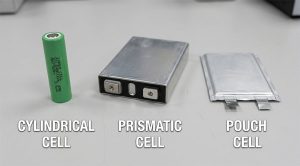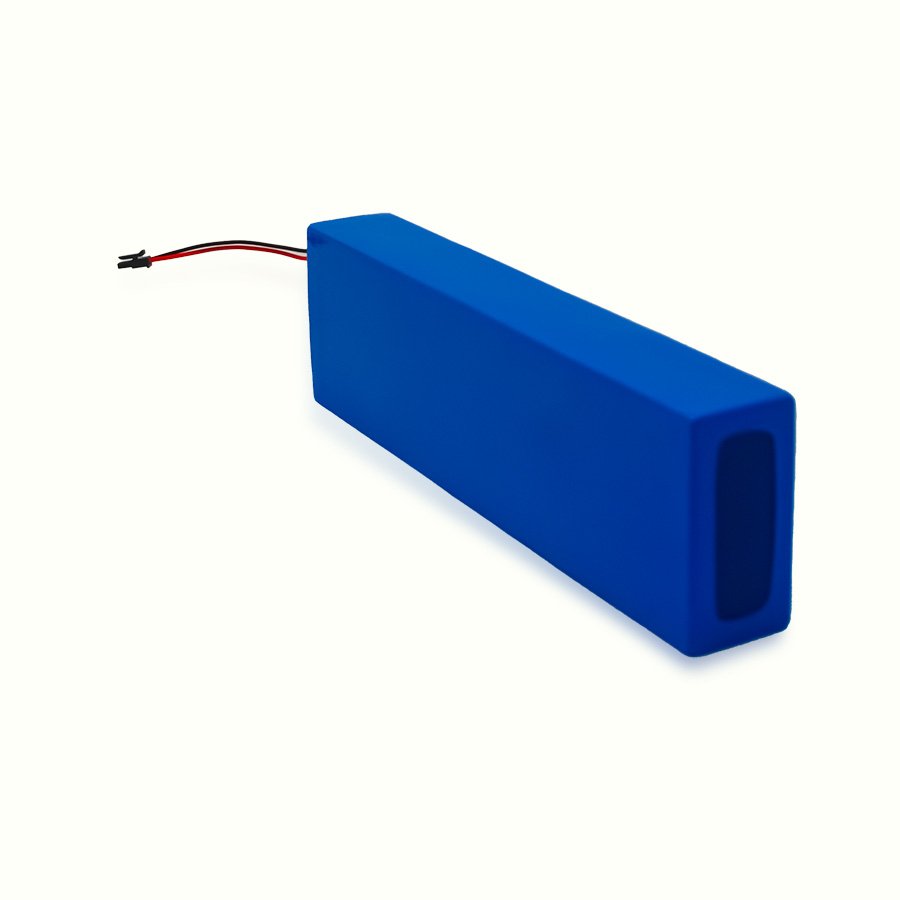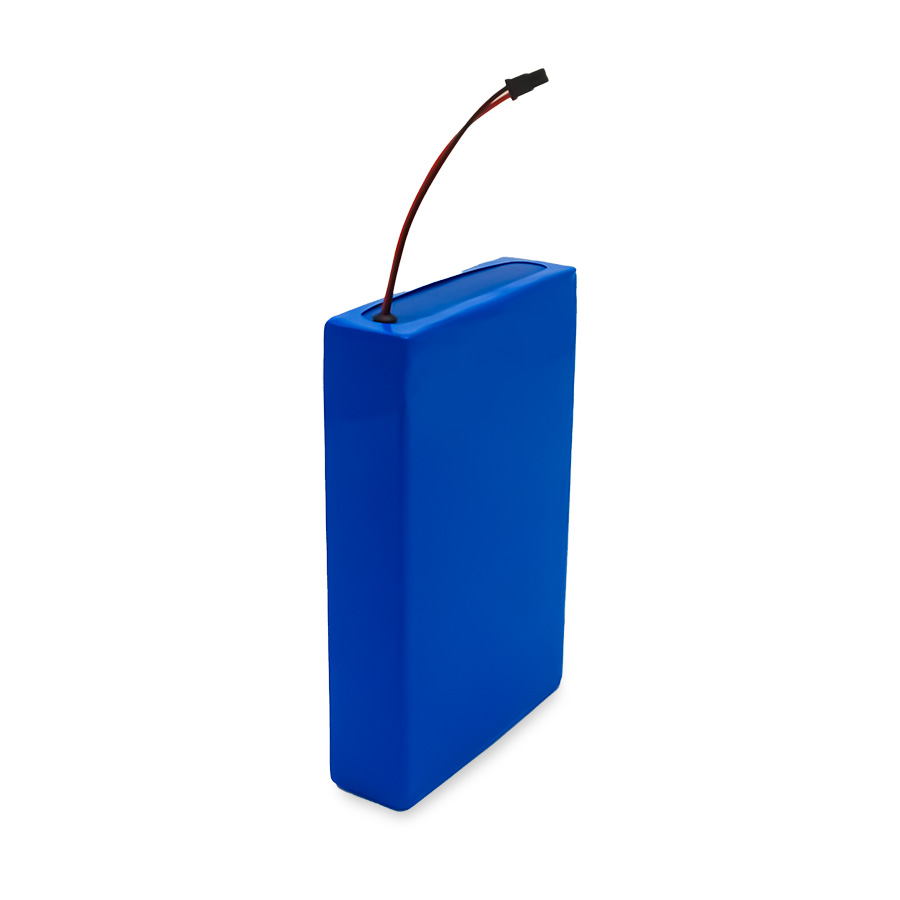As healthcare continues to evolve toward smart, connected, and mobile solutions, lithium ion battery technology is becoming a cornerstone of innovation in portable and wearable medical devices. From blood glucose monitors to smartwatches and ECG patches, medical electronics rely on reliable, compact, and energy-efficient power sources. This article explores why low-voltage lithium-ion batteries are increasingly favored by medical device manufacturers and what enterprise buyers should consider when sourcing them.

Understanding the Shift Toward Low-Voltage Power in Medical Devices
In the past, medical devices often relied on larger, high-voltage batteries. However, the latest generation of wearable medical devices demands smaller, lighter, and safer power options. Low-voltage lithium-ion batteries—typically rated at 3.7V—offer the ideal balance between size, performance, and energy density.
They are particularly suited for portable diagnostic tools, fitness monitors, and smart healthcare patches, all of which require steady current output without overheating or voltage instability. The ability to provide consistent energy delivery at lower voltages ensures both device safety and patient comfort.
Key Advantages of Low-Voltage Lithium-Ion Batteries
- Compact Size and Lightweight Design
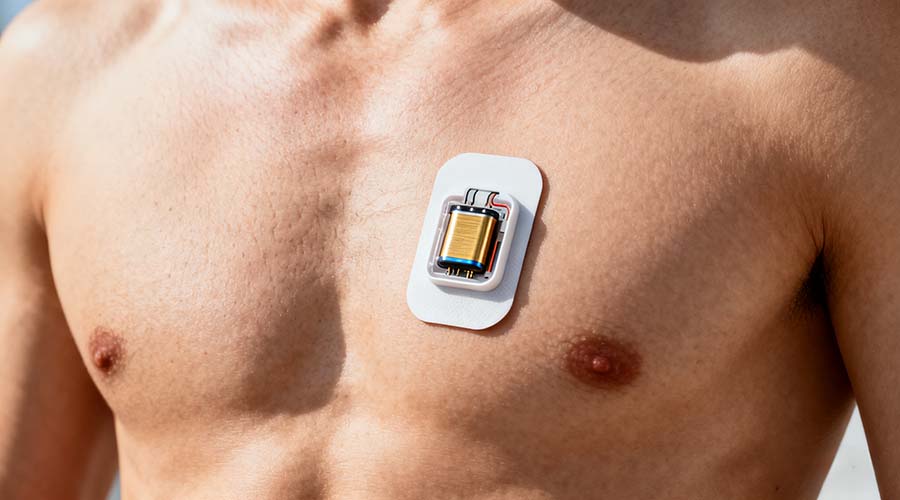
Modern lithium ion battery cells have a high energy density, which allows device designers to pack more power into smaller spaces. This characteristic is essential for wearable medical electronics, where weight and comfort are critical.
For example, a lightweight patch that monitors heart rate or oxygen levels must be comfortable for extended wear. A 3.7V low-voltage lithium-ion battery can deliver reliable power for long durations without adding bulk.
- Stable Voltage Output and Safety

Low-voltage batteries inherently reduce the risks of overheating or short-circuiting, which is vital in medical electronics that operate close to the human body. The lithium-ion chemistry ensures stable performance across various temperature ranges, making them reliable even under continuous operation.
3. Longer Life Cycles and Rechargeability
Rechargeable lithium-ion batteries can endure hundreds to thousands of charge cycles. This longevity translates to reduced maintenance and lower operational costs for healthcare providers. Unlike disposable batteries, these cells also support sustainability goals, aligning with medical manufacturers’ push toward eco-friendly designs.
4. Enhanced Design Flexibility
Manufacturers can choose from a variety of lithium-ion battery shapes and configurations, such as cylindrical, prismatic, or pouch cells. This versatility allows medical device engineers to design compact, flexible products like insulin pumps, hearing aids, and wireless ECG monitors.
Energy efficiency directly affects battery life and user experience. Low-voltage lithium-ion batteries convert stored energy into usable electrical power with minimal loss. This efficiency is critical for continuous monitoring devices that must operate around the clock without frequent recharging.
How Low-Voltage Batteries Improve Portable Medical Device Performance

For devices like portable ultrasound scanners or wearable ECG monitors, every additional minute of battery life matters. Low-voltage lithium-ion batteries maximize operational time while maintaining steady output. Their low internal resistance minimizes power waste and ensures optimal performance.
Unlike traditional power solutions, lithium-ion batteries produce no noise, vibration, or emissions. This characteristic enhances patient comfort and allows medical devices to operate discreetly—an important factor in hospital and home-care environments.
Compatibility with Miniaturized Circuits
Today’s wearable medical devices integrate microprocessors, wireless modules, and sensors in compact spaces. A 3.7V lithium-ion battery is ideal for such circuits because its voltage range aligns perfectly with low-power electronics, eliminating the need for additional voltage converters.
The Role of Energy Density in Medical Innovation
Energy density—the amount of energy stored per unit of weight or volume—is one of the most critical factors influencing device performance. The higher the energy density, the smaller and lighter a device can be while maintaining long operating hours.
Low-voltage lithium-ion batteries offer some of the highest energy densities available in commercial applications. For example, a compact battery can power continuous glucose monitoring for days, improving user convenience and reliability.
Challenges and Procurement Considerations for Enterprises
While lithium-ion batteries offer numerous advantages, enterprises must pay attention to several key factors during procurement:
- Safety Certifications – Ensure compliance with UL, IEC, and UN38.3 safety standards for medical applications.
- Customizable Design – Look for suppliers who offer custom lithium-ion battery packs to meet specific voltage and capacity needs.
- Cycle Life and Reliability – Evaluate the number of charge/discharge cycles and capacity retention over time.
- Operating Temperature Range – Confirm that the battery performs well under both room and body temperature conditions.
- Supplier Reputation – Choose experienced manufacturers that understand medical device battery requirements and quality assurance protocols.
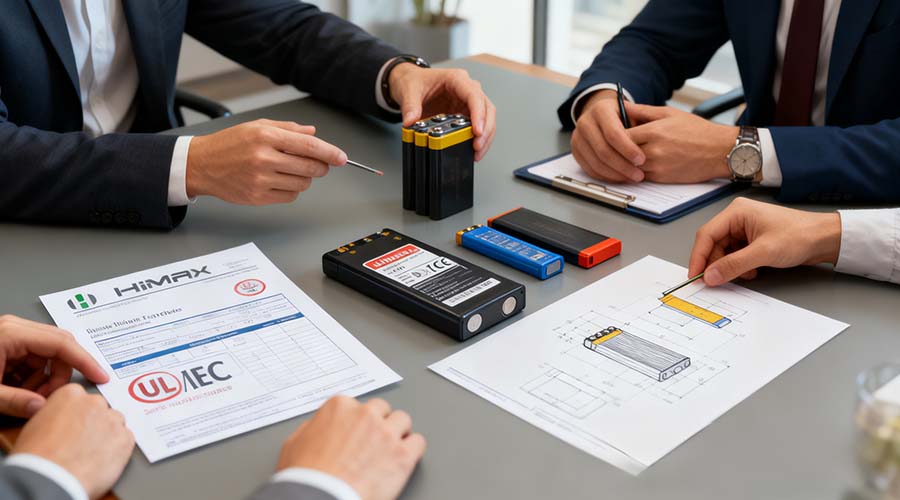
How to Choose the Right Battery Partner for Medical Applications
Selecting the right lithium ion battery supplier is crucial for ensuring product safety, regulatory compliance, and long-term performance. Ideal suppliers provide:
- Proven experience with medical-grade batteries
- Strict quality testing processes
- Ability to customize voltage, capacity, and shape
- Global logistics support and after-sales service
Working with a reliable manufacturer not only reduces production risks but also accelerates time-to-market for your medical device solutions.
Introducing HiMAX 3.7V Lithium Ion Battery — Reliable Power for Medical Devices
If you are looking for a dependable medical devices battery, the HiMAX 3.7V lithium-ion battery delivers exceptional energy density, compact form, and stable voltage output ideal for healthcare applications. HiMAX batteries meet strict safety and performance standards, making them the trusted choice for portable, wearable, and IoMT medical devices. With advanced customization options and a strong focus on quality assurance, HiMAX empowers enterprises to design smarter, safer, and longer-lasting medical solutions.
Find articles related to lithium ion batteries

